Currently I have a single server in amazon where I put all my cronjobs. I want to eliminate this single point of failure, and expose all my tasks as web services. I'd like to expose the services behind a VPC ELB to a few servers that will run the tasks when called.
Is there some service that Amazon (AWS) offers that can run a reoccurring job (really call a webservice) at scheduled intervals? I'd really like to be able to keep the cron functionality in terms of time/day specification, but farm out the HA of the driver (thing that calls endpoints at the right time) to AWS.
I like how SQS offers web endpoint(s), but from what I can tell you cant schedule them. SWF doesn't seem to be a good fit either.

